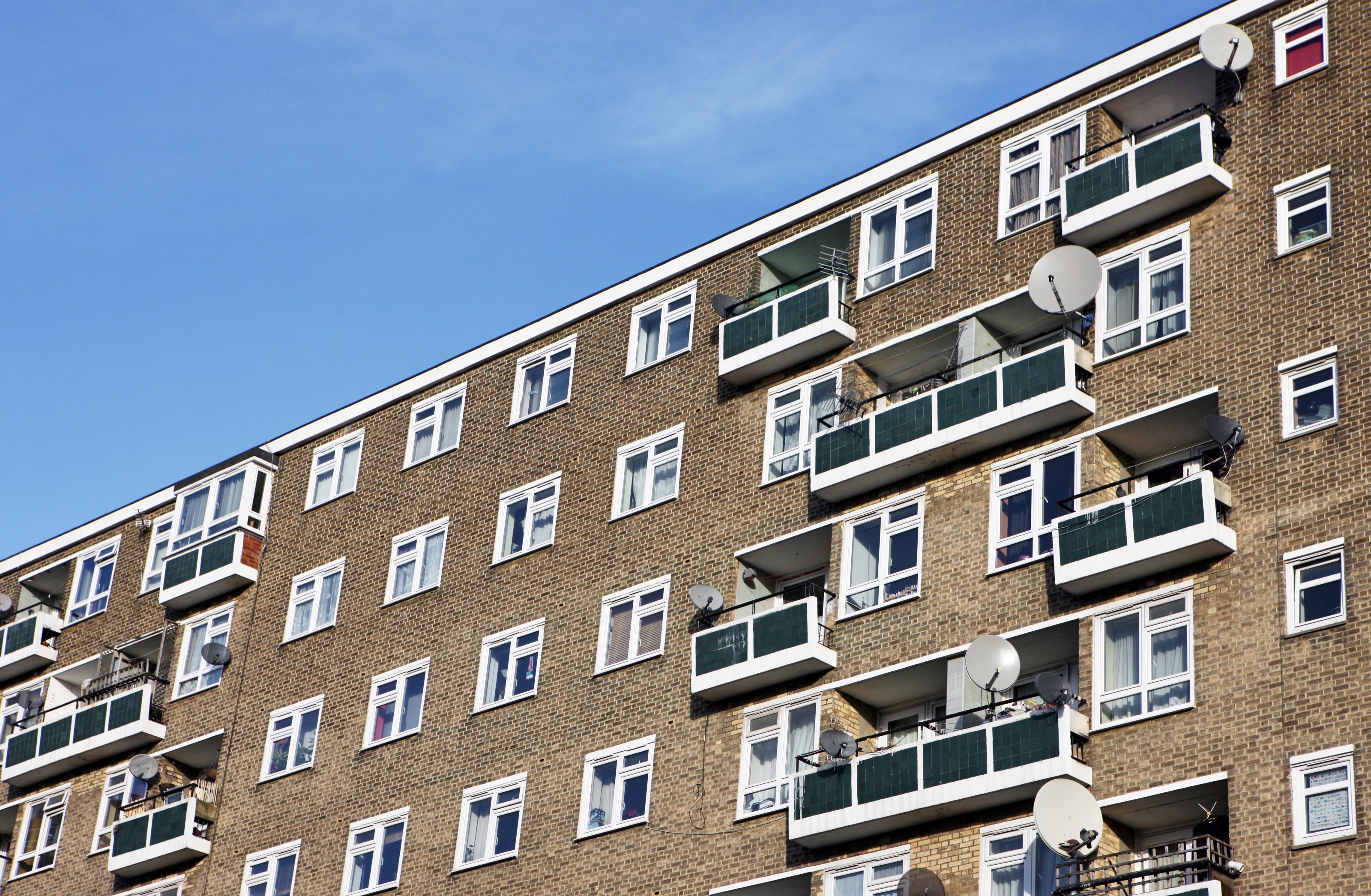Could this law change make renovating leasehold properties easier?
Owners of leasehold properties could be given greater rights to buy the freehold — giving them more freedom to renovate

Laws that prevent leasehold owners from buying the freehold of their properties could be scrapped, under new plans being looked at by Michael Gove.
Michael Gove, the Secretary of State for Levelling Up, Housing and Communities, called the current system "unfair" in a televised interview last week, explaining that he was planning to shake it up.
"In crude terms, if you buy a flat that should be yours. You shouldn't be on the hook for charges that managing agents and other people can land you with which are gouging," he said.
Spiralling ground rents, excruciatingly high maintenance and service fees as well as having to fork out thousands of pounds in building repairs have all been problems for leaseholders in recent years. This has left some leasehold owners "fearing financial ruin to make their homes safe", Gove explained to the House of Commons.
There are around five million leasehold homes in the UK. Giving leasehold owners greater powers to buy the freeholds to their homes will also give them more control when it comes to renovating. Here, we explain all.
What is the current law on leasehold properties?
When you buy a leasehold property you only own the home for a set period, rather than indefinitely like with freeholds, and you don't own the ground it sits on either.
Typical leasehold agreements are for between 99 and 999 years, but when the lease length dips below 70 years it can be difficult to get a mortgage and sell the property without purchasing a longer lease on it.
Get the Homebuilding & Renovating Newsletter
Bring your dream home to life with expert advice, how to guides and design inspiration. Sign up for our newsletter and get two free tickets to a Homebuilding & Renovating Show near you.
Due to not owning the ground the home sits on, leasehold properties can be subject to ground rent, as well as service and maintenance charges, from the freehold owner. Not to mention, sometimes being forced into payments towards the upkeep of the building such as re-roofing costs and re-cladding while not having much say in who does the work.
The government has already banned new build homes being sold as leasehold, after introducing legislation against the practice in 2019. This came into effect in June 2022 but does not apply to new build flats.
Ground rent was also effectively abolished for new leases granted on or after 30 June 2022, with the government changing the law so freeholders can now only charge a "peppercorn rent".
How is Gove hoping to change the leasehold system?
The government has already made it easier for leasehold owners to buy a share of the freehold for their property. Gove wants to give leaseholders even more ability to do this, granting them greater power to be able to buy the freehold.
But while Gove has signalled his dislike of the whole leasehold system, allowing leasehold owners to buy the freehold to their property realistically is unlikely to remove the need for leaseholds entirely. This is due to the complexities of some leasehold properties, such as large blocks of flats.
The solution it seems would be for the leasehold to own both the existing leasehold as well as a share of the freehold, known as a "commonhold", rather than this being owned by a third party with a financial interest rather than a residential one.
The changes could also mean leaseholders who could not previously buy the freehold due to part of the building being used for commercial purposes (i.e. a flat above a shop) may be able to as the laws preventing them doing so, would be scrapped.
"Because you've got a tangle of deals going back hundreds of years – unstitching all of that is difficult – but the fundamental thing is that leasehold is an unfair form of property ownership. It is an outdated feudal system that needs to go," Gove said, explaining that the changes would need new legislation to be introduced.
He also plans:
- To stop freeholders being able to claim back legal fees against leasehold owners
- To enable leaseholders the right to option to buy out the ground rent without having to extend their leasehold term
Lord Stephen Greenhalgh, the Leasehold Minister, added as the consultation was being launched last month: "The current leasehold system is outdated, unbalanced and broken and we are determined to fix it. Our proposals aim to rebalance power and should see more leaseholders than ever before owning the full rights to their homes."
What would the proposals mean for renovators?
Removing barriers so leaseholders can buy the freehold to their properties could potentially give them much more freedom to make improvements to their homes.
Leasehold homes have typically been more troublesome renovation projects. Making even the most basic of changes to the interior may require freeholder approval and this is usually written into the leasehold agreement. This can include installing a new floor, remodelling the kitchen or bathroom, or making changes to windows.
There have also been cases where a leaseholder has unwittingly carried out changes and found themselves in breach of their leasehold agreement, leaving them at risk of being sued by the freehold owner.
In 2018, leasehold owner Charles McCadden had his £600,000 flat seized by the freehold owner after adding a new kitchen and bathroom without permission. He had purchased the Victorian flat in northwest London with inheritance money and lost it due to a little known "forfeiture law", which he found himself in breach of due to redecorating in breach of the leasehold agreement.
Other cases have seen leasehold owners refused permission to make any updates to their home, leaving them unable to make any improve for sometimes spurious reasons. And there have been cases whereby the freehold owner has demanded to charge the leasehold owner a fee costing hundreds of pounds for consent to be granted.
In terms of permitted development rights, flats and maisonettes usually do not benefit. Changing a flat from leasehold to freehold is unlikely to change this.

Amy spent over a decade in London editing and writing for The Daily Telegraph, MailOnline, and Metro.co.uk before moving to East Anglia where she began renovating a period property in rural Suffolk. During this time she also did some TV work at ITV Anglia and CBS as well as freelancing for Yahoo, AOL, ESPN and The Mirror. When the pandemic hit she switched to full-time building work on her renovation and spent nearly two years focusing solely on that. She's taken a hands-on DIY approach to the project, knocking down walls, restoring oak beams and laying slabs with the help of family members to save costs. She has largely focused on using natural materials, such as limestone, oak and sisal carpet, to put character back into the property that was largely removed during the eighties. The project has extended into the garden too, with the cottage's exterior completely re-landscaped with a digger and a new driveway added. She has dealt with de-listing a property as well as handling land disputes and conveyancing administration.
